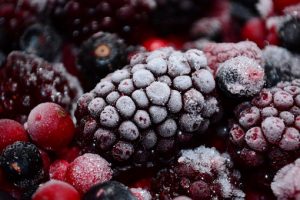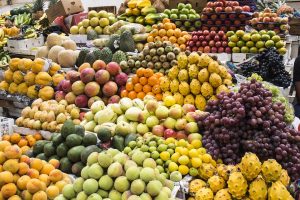What about Frozen Products?

Most people may think frozen products are raw, if they weren’t previously cooked. In my opinion, frozen products aren’t fully raw because they have been altered, tampered with, interfered with, and manipulated. They are not fresh. Some see this as a technicality, but it is important to make this distinction, and understand the damage incurred when raw fruits and vegetables are frozen.
The freezing process provokes changes in temperature that expand and burst the cell walls of fruits and vegetables. This leads to an oxidative reaction that diminishes the nutritional value of food. The degree of nutritional damage needs to be explored to greater detail, but we rather be safe than sorry. Most nuts and seeds can sustain cold temperatures, they are designed to sustain the freezing winter season.
That being said, freezing is one of the best ways to preserve foods, because the process introduces no toxins at all. Freezing is also an effective tool to help people stay raw, because it helps us have more options available. This is why eating frozen foods can be useful when necessary. At the same time, it is important to keep our consumption of frozen foods to a minimum. Not only are they less nutritious than raw foods, but they also take more resources to prepare, package and store.
Remember that frozen fruits and vegetables aren’t part of our natural diet. The temperature of frozen foods force our body to spend large quantities of energy to warm them up. Moreover, the cold can damage intestinal bacteria essential for proper digestion. This is why we want to avoid frozen foods as much as possible. Fresh, organic, and truly raw fruits and vegetables are always the best option.
Previous Section:
Next Section:
Acknowledgments



